If you are looking to start a construction business, it is likely that you have already worked in the building trade in some capacity, so you are already halfway there when it comes to understanding what is required. However, running a business is very different to working for someone else – either as an employee or freelance – and there are several pitfalls you will want to avoid in order to make it a success.
It is widely suggested that £5,000 is all it takes to start up a construction business. This is partly due to the fact that most of your practical and building work will occur offsite in someone else's domain, so you are able to save money on capital expenditure by working from home to complete paperwork and other clerical tasks. You are also likely to already have a lot of the tools required and may have previous customers you have worked for who are keen to contract you again on other projects.
Thanks to the 'Build Back Better' scheme implemented by the Government, construction is growing at around 3% since the pandemic, and there is currently heavy investment in large infrastructure projects. So, it is a good time to think about branching out on your own and taking advantage of the increased work.
Check out the competition
Before you decide on setting up your own construction business, it is sensible to check out the competition in the areas in which you hope to work. If there are already several building firms in your desired area, can you find a niche for yourselves or relocate to somewhere that has less competition?
You should also think about your target demographics, both in terms of the types of people who may need your services and the land that there is to build on. Speak to people who live in the area, check out planning applications at the local Council and find out what is in the offing, to see if the work is there.
Quotes and pricing
When you are considering these aspects, you should also think about your costs. You don't want to be setting them so high that you price yourself out of your target market. But you also don't want to quote too low and find that you are unable to complete a job to the standard required without going over your own budget.
Depending on the size of your company, and your projected income, you are more than likely to need to register to pay VAT. Make sure you factor this into your plans, or it could be a very expensive mistake to make. You will be able to claim back VAT on items you purchase for the business, but this does not happen instantly so you will be left out of pocket for a while.
The Construction Industry Scheme sets out plans for self-employed contractors and is something you will need to look into, both for yourself and anyone you have working for you in a freelance capacity.
Supply and demand of materials
Various international issues have resulted in reduced building supplies available and delays in getting them into the UK and through customs. Where possible, using materials sourced directly from the UK will be of benefit, both financially and sustainably. Time costs money, and delays to building projects often have knock-on effects with other related services that are unable to come in and complete their part of the build, all of which is likely to fall on your shoulders as the principal construction company. Anything that can be done to mitigate this and ensure the workflow stays on schedule will reduce the possibility of extra costs being incurred.
Often, clients will add clauses into contracts which state they will pay less than the quoted amount for the work if it doesn't come in on time, so it is in your best financial interests to make sure it does, and to have contingency plans in place for unforeseen circumstances.
Cash Flow concerns
Due to the nature of construction, you may well have high upfront costs as all your building materials will probably need to be paid for in advance and you will almost certainly only receive a deposit from the client until the work is completed. Depending on the length of the job, you may also have to include regular staffing costs into your plans.
Construction finance invoice services are a popular method of keeping money flowing in. These involve selling your unpaid invoices or applications for payment to a finance company. They will pay you 95% of the balance at this time, making money more available to purchase materials and equipment. The customer will then pay the invoice company when the work is completed to their satisfaction, and you will receive the final 5%.
There are some risks involved in this, such as the job not being completed for reasons beyond your control, so you will need to think about this method very carefully for each job you do, rather than blindly going along with it as the easy option.
How will it affect your personal finances?
When it comes to your own money, you can reasonably expect to take 8% of each job as salary for the first five years of being in business. This can then be extended to 10% if you feel the money is there and available and can increase in steady increments after that if your business is successful. Because this means you don't have a regular and steady income of a set amount each month, it can be tricky to apply for personal loans such as mortgages.
Nevertheless, there are some contractor mortgages available that take into account all these factors. According to Pete Mugleston, Managing Director and Mortgage Advisor at Online Mortgage Advisor, contractor friendly mortgage lenders take the following factors into account when deciding whether you're eligible for a mortgage:
• The type of contractor you are
• How long you've been contracting for
• How long you've worked in that industry
• If you have had contracts renewed before
• How long you have left on your contract
These factors are worth considering if you decide you want to buy yourself a house and not just build them for other people! It may also be pertinent information for any freelance staff you contract in to carry out your services.
Paperwork and health & safety requirements
When setting up any business, there is a lot of paperwork involved. But, in construction and with all the dangers that can bring, health and safety is at the forefront. Having robust plans in place to deal with all aspects of health and safety on your site not only protects everyone working there, but it also means that you are less likely to need to pay out for any claims for negligence. Ensuring everyone on site has a construction skills certification scheme card could be particularly beneficial. The test costs £22.50 to take but is well worth spending the money for increased peace of mind.
Being aware of the Construction (Design and Management) Regulations 2015 will also assist in making sure your jobs are completed to designated building regulations so that there are no legal
comebacks later down the line or expensive changes that need to be made and which can knock the whole job out of kilter.
Expansion of your business
If your business is going well and you are getting lots of jobs to quote for, you may decide to expand your operations, bring on more staff and put yourself forward for bigger and better jobs. It is important that you don't expand too quickly and end up overstretching yourself.
All too often people run before they can walk in business and end up tripping over and setting themselves back many months or even having to file for bankruptcy if it all gets too much too quickly. This is one of the main dangers and every decision you make should bear this in mind.
Final thoughts
If you take on board all these points and consider everything very carefully, there is no reason why starting your own construction business shouldn't be a very rewarding experience – both personally and financially.
Construction News
11/04/2022
Starting Your Own Construction Business: 7 Financial Mistakes To Avoid


13/06/2025
A vital piece of Peak District railway infrastructure is set to receive a major upgrade this summer, as Network Rail announces a £7.5 million investment into one of Chapel Milton's iconic twin Victorian viaducts.
The 160-year-old, 15-arch structure plays a critical role in the UK's freight network,

13/06/2025
Morgan Sindall Construction has revealed plans to expand its operations in South Yorkshire, building on its strong delivery record in West Yorkshire and aligning with the goals of the newly launched Great North initiative.
Backed by northern regional mayors, the Great North initiative aims to unloc

13/06/2025
Construction has officially commenced on the new Children's Cancer Centre (CCC) at Great Ormond Street Hospital for Children (GOSH).
Led by long-term design partner BDP, the new centre is one of the most ambitious projects in GOSH's history. The firm is overseeing architecture, landscape, engineeri
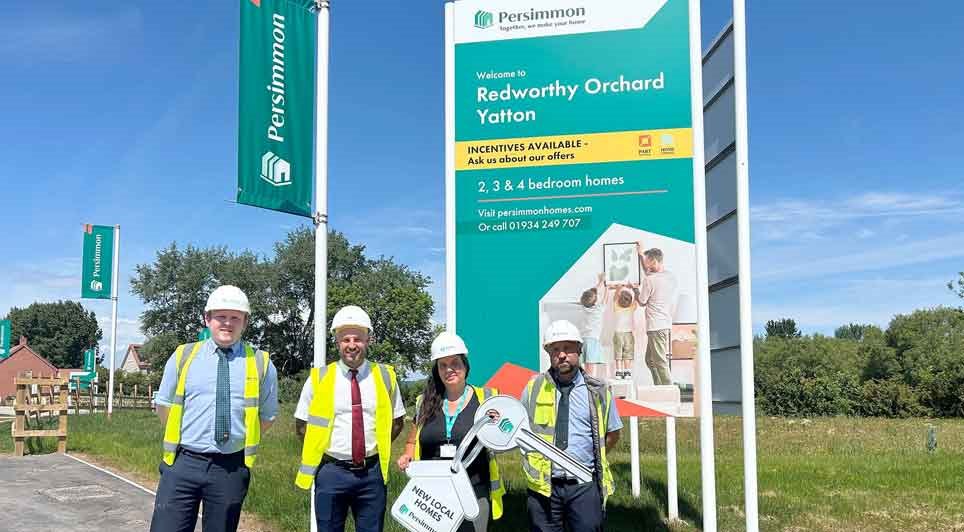
13/06/2025
The developer behind the Redworthy Orchard scheme in Yatton has handed over the first homes to a local housing association as part of a wider plan to provide affordable housing in the area.
Persimmon Homes Severn Valley has transferred four new properties to Alliance Homes, a move set to ease press

13/06/2025
Wynne Construction has been awarded two major design and build contracts worth over £20 million by Adra to deliver nearly 100 new social homes across North Wales.
Construction is already underway at the first site on Berse Road, Wrexham, where Wynne began work in March on a £9 million, 47-home soci
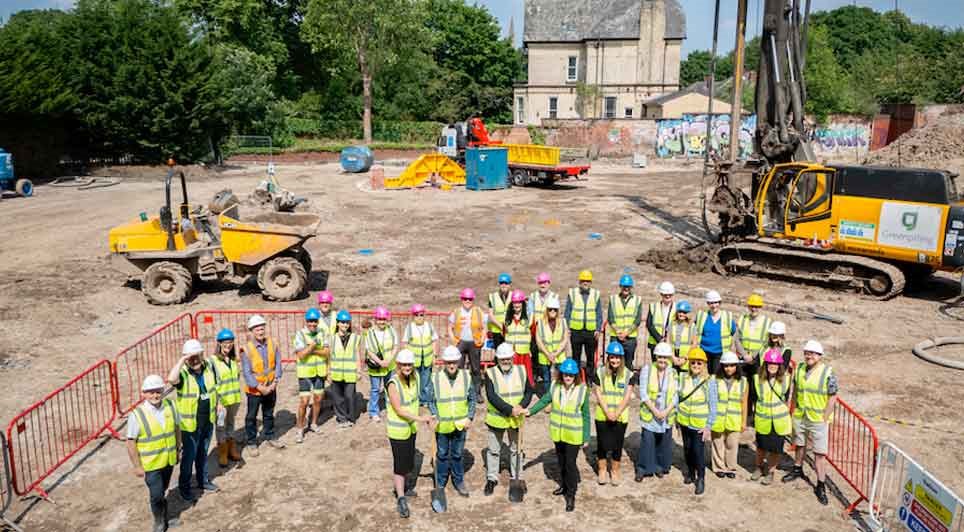
13/06/2025
Great Places Housing Group has officially broken ground on its landmark £37 million LGBTQ+ majority Extra Care housing scheme in Whalley Range, marking the start of construction during Pride Month.
The scheme, hailed as the UK's first purpose-built Extra Care development of its kind, is being deliv
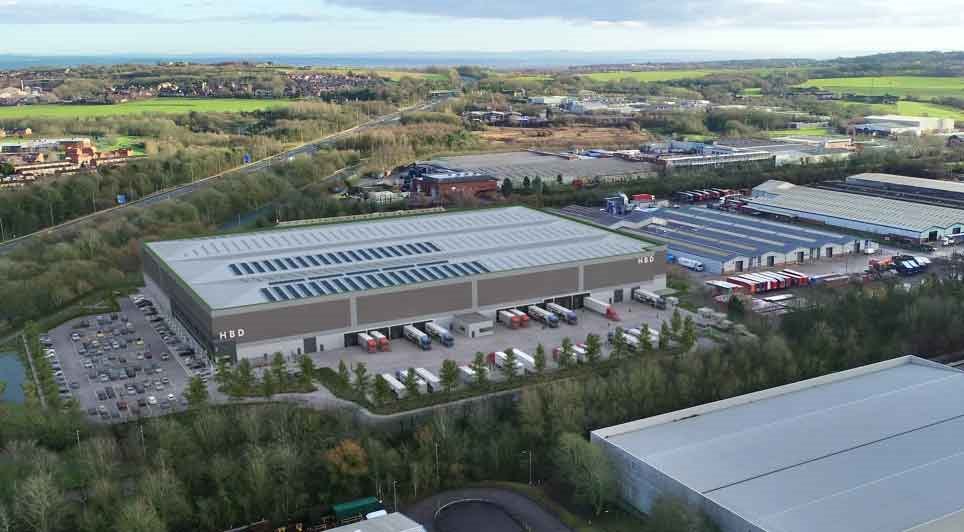
13/06/2025
Henry Boot PLC has announced that its property investment and development arm, HBD, has completed the sale of TWO45, a multi-let industrial-led business park in Skelmersdale, to a European real estate developer for £9.5 million.
Located on a 10-acre site just minutes from the M58 and M6 motorways,
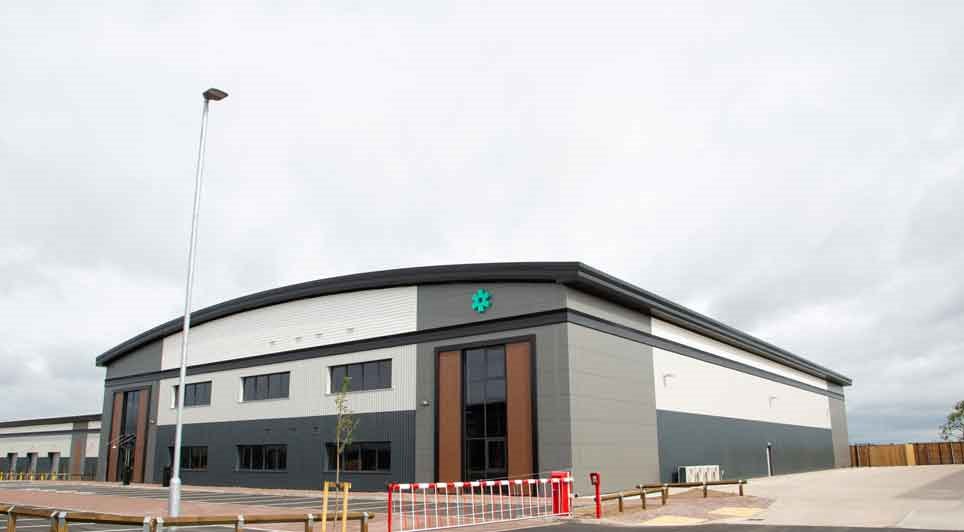
13/06/2025
Clowes Developments has announced the successful letting of Unit 5A, a newly completed 27,000 sq ft industrial unit at Stud Brook Business Park, to Shawpak Ltd, a pioneering manufacturer of medical device packaging machinery.
Founded in Derby in 2013, Shawpak Ltd designs and produces a unique range

13/06/2025
The Hill Group and Legal & General (L&G) have announced a new partnership to deliver 200 affordable homes as part of the first phase of the £450 million City Centre South regeneration scheme in Coventry.
This marks the first time the two organisations have collaborated on a major residential devel
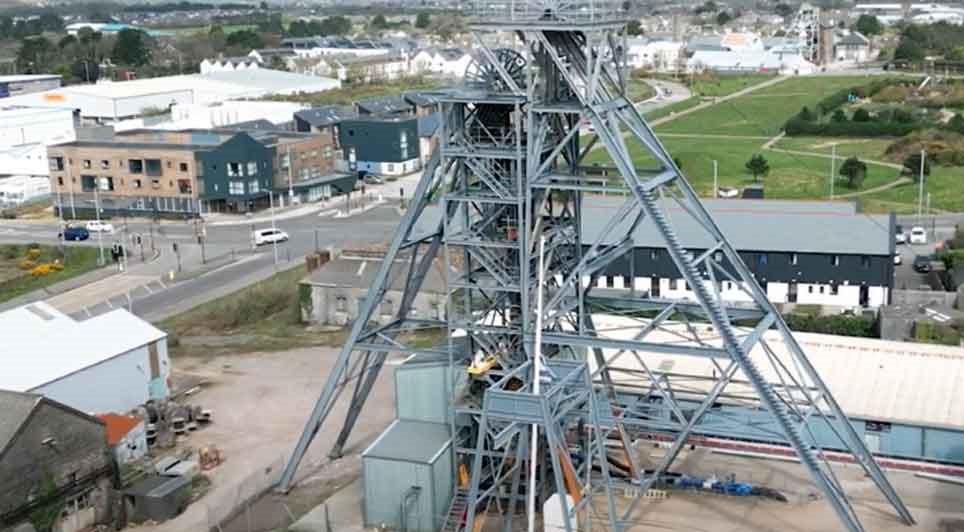
13/06/2025
The historic South Crofty tin mining project in Pool, Cornwall, is set to receive a significant boost after being awarded £4,190,500 through the Cornwall and Isles of Scilly Good Growth Programme, marking the largest single private sector investment by the programme to date.
Delivered by Cornwall C
 UK
UK Ireland
Ireland Scotland
Scotland London
London











